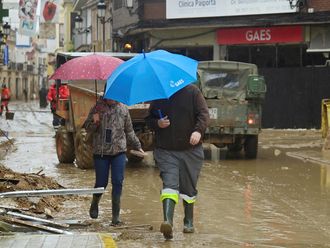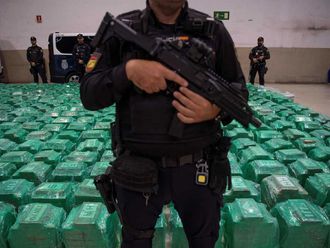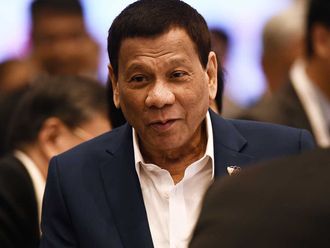London: Britain's Supreme Court ruled Wednesday that the government overstepped its power when it froze the bank accounts of five terrorist suspects without a vote in Parliament. It said the special Treasury orders were unlawful.
The government said it had a duty to disrupt terrorist financing, and would seek Parliamentary approval for "fast-track legislation to ensure there is no disruption to our terrorist asset-freezing powers."
The court also ruled that the suspects' names should be made public, after a challenge by media groups including The Associated Press. They had initially been granted anonymity and identified only by initials.
The five men had their assets frozen by the Treasury between 2005 and 2007 and have had to apply for permission even to buy groceries and other essentials. They are accused by the government of offenses including meeting Al Qaida leaders and giving support to terrorist organizations in Pakistan, but they have not been charged or convicted by any court.
The men's assets were seized based on two UN Security Council resolutions that imposed sanctions on people alleged to be funding terrorism.
The judges said the effect on the men's lives had been "very burdensome ... The impact on normal family life is remorseless and it can be devastating."
Seven Supreme Court judges ruled that the Treasury did not have the power to make orders that "interfere so profoundly with individuals' fundamental rights without parliamentary scrutiny."
The lead justice, Lord Phillips, said the ruling "upholds the supremacy of Parliament in deciding whether or not measures should be imposed that affect the fundamental rights of those in this country."
The decision is the latest in a series of court rulings undermining tough anti-terrorism measures introduced by the British government after the September 11, 2001 attacks.
The ruling could have far-reaching implications for the government's ability to freeze assets in the future. More than 50 people living in Britain are believed to be on the Treasury sanctions list.












